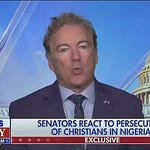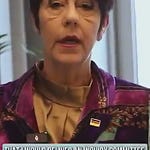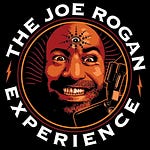Government Overreach and Lasting Harm: Stephen Nekhaila on COVID-19, Libertarianism, and the Path Forward
Kurt Wallace interviewed Stephen Nekhaila, the newly elected chair of the Libertarian National Committee (LNC), delving into the profound and ongoing impacts of the government’s response to COVID-19.
Joined in spirit by libertarian-leaning figures like Senator Rand Paul and Representative Thomas Massie, who have long criticized government overreach, Nekhaila offered a scathing critique of the pandemic-era policies that he believes have inflicted massive harm on Americans—economically, socially, and psychologically—while benefiting entrenched interests like Dr. Anthony Fauci, the National Institutes of Health (NIH), Big Pharma, and the World Health Organization (WHO).
Wallace framed the discussion with pointed observations, emphasizing the betrayal felt by many Americans:
“The government overspends and it violates civil liberties and it violates our sovereignty.”
The Devastating Fallout of COVID-19 Lockdowns
The interview quickly turned to Nekhaila’s firsthand experience during the COVID-19 lockdowns, which he described as both economically disastrous and socially corrosive. Recalling the abrupt closures in March 2020, he painted a vivid picture of Key West on St. Patrick’s Day: “At 5 p.m., the government decided we’re all shut down.” His Wendy’s on Duval Street, typically bustling, was crippled by inconsistent rules—
“What made sense during COVID era? Absolutely nothing,” - Nekhaila
Help Rand Paul Review bring you the truth. Upgrade your subscription today!
The economic toll was immediate: “A lot of people moved, a lot of people left. There was basically no commerce being conducted for the next several months.” Drive-thru windows saved his businesses, but many others weren’t as fortunate.
The broader societal impact was even more alarming. Nekhaila noted spikes in drug use, suicides, and mental health crises, stating, “People are at their wit’s end… The only thing making the city money was the ambulances.” Kurt Wallace underscored this devastation, observing,
“The psychological effect of having people wearing masks and not being able to see facial expressions, that’s dehumanizing.”
Children, in particular, have suffered lasting harm, with developmental setbacks and social isolation leaving scars that persist years later. Nekhaila’s experience mirrors concerns raised by Thomas Massie, who has criticized lockdown policies for their disproportionate impact on small businesses and vulnerable populations, often citing the need for localized, rather than federal, solutions.
Economically, the government’s response exacerbated the damage through reckless spending and money printing.
“We did a 50 percent expansion of the money supply because of COVID-19,”
Nekhaila explained, linking this to ongoing inflation that has driven up the cost of essentials like eggs and housing. Wallace amplified this point, noting,
“Americans are struggling. Credit card debt has skyrocketed… People on a fixed income are suffering.”
Rand Paul, a staunch advocate for fiscal restraint, has similarly decried this “hidden tax” of inflation, arguing that unchecked government spending continues to erode Americans’ purchasing power and financial stability—a harm that lingers far beyond the initial crisis.
Truth as the First Casualty and a Money Grab for the Elite
Perhaps the most damning indictment came when Nekhaila declared,
“The very first fatality was the truth, and that was because of government authoritarianism.”
He pointed to early suppression of information, such as the Chinese government’s silencing of Dr. Li Wenliang, who died after blowing the whistle on the virus. In the U.S., Nekhaila accused the CDC and NIH of botching the response—testing was woefully inadequate, with “South Koreans doing 10,000 tests per day” while the U.S. managed “maybe a couple a day.” Worse, he alleged a deliberate effort to control the narrative, citing instances where independent labs were threatened with criminal charges for reporting positive cases.
Nekhaila didn’t stop there, asserting that the government’s response was a “money grab” for powerful interests. “Who benefited from COVID-19?” he asked rhetorically, pointing to Dr. Fauci, the NIH, and Big Pharma as primary beneficiaries. He accused Fauci of lying about masks—
“He (Fauci) said don’t buy a mask, masks don’t work… then a month later he came back and said just kidding, masks actually work”
—Nekhaila claimed the NIH and CDC pushed vaccines as the sole solution while ignoring alternatives like vitamin D, zinc, or ivermectin.
“There’s very likely regulatory capture there, and who knows the kickbacks from Big Pharma”
Nekhaila speculated, a sentiment that aligns with Rand Paul’s repeated calls for transparency in government dealings with pharmaceutical companies, including his grilling of Fauci in Senate hearings over gain-of-function research funding.
The WHO’s Bid for Global Power
Nekhaila also sounded the alarm on the WHO’s ambitions, a topic he addressed through a resolution he authored urging the U.S. to withdraw from the organization. He described a proposed agreement that would require member countries to cede “sovereignty over any kind of pandemic or epidemic response” in exchange for contributing 8% of their healthcare budgets.
“The WHO would be in charge of a country’s ingress and egress… They want to control the narrative and punish those that threaten their narrative”
Nekhaila warned, framing it as a dangerous step toward globalist overreach. Wallace echoed this concern, noting,
“They’re kind of puppets of the pharmaceutical industry and the financial powers behind that.”
Thomas Massie has similarly criticized international bodies like the WHO, advocating for policies that prioritize American sovereignty and local decision-making over global mandates.
From Business Owner to Libertarian Advocate
Stephen Nekhaila, a veteran libertarian activist since 2014 and a member of the LNC since 2016, assumed the role of chair with a sense of duty.
“It’s truly an honor to be elected by the board to be the current national chairman”
A business owner with 12 Wendy’s franchises across Florida, North Carolina, and Virginia, as well as other ventures like a Dairy Queen and a movie theater, Nekhaila believes his entrepreneurial experience equips him to lead the party effectively. “Given my business expertise and experience, it makes me uniquely positioned to be chairman of the Libertarian National Committee,” he stated, echoing the pragmatic individualism championed by figures like Rand Paul, who has often highlighted the need for leaders who understand the real-world impacts of policy.
A Libertarian Path Forward Amid Ongoing Harm
Looking ahead, Nekhaila outlined a vision for the Libertarian Party that emphasizes local action and ideological clarity. “The identity of the Libertarian Party has always been a big tent,” he said, encouraging those who align with 70-80% of the platform to join. His focus is on electing 500 libertarians to local offices over the next four years through initiatives like “Project Decentralized Revolution,” which aims to equip candidates with the tools to win. He also highlighted policy wins, such as the pardon of Ross Ulbricht, and growing libertarian influence in mainstream discourse—a trend Rand Paul and Thomas Massie have helped advance through their vocal advocacy in Congress.
Yet the interview underscored a grim reality: the government’s reaction to COVID-19 has inflicted massive, ongoing harm on Americans. From economic ruin and inflation to psychological trauma and eroded trust, the fallout continues to ripple through society. Nekhaila’s assertion that
“the very first fatality was the truth”
serves as a haunting reminder of how misinformation and authoritarianism compounded the crisis, while his accusations of profiteering by Fauci, the NIH, and Big Pharma highlight a betrayal of public trust. As the WHO seeks greater global control, figures like Nekhaila, Paul, and Massie stand as bulwarks against further erosion of liberty, advocating for a return to principles of limited government and individual freedom.
A Call to Action
Nekhaila closed by inviting listeners to engage with the Libertarian Party:
“Head over to lp.org, sign up for our newsletter, consider becoming a member.”
For those inspired to act locally, he suggested exploring libertarian chapters or running for office. Wallace, reflecting on the broader significance, noted, “The work that the Libertarian Party does is invaluable to the survival of this country.” In an era marked by government overreach and lasting harm, Stephen Nekhaila’s voice—amplified by allies like Rand Paul and Thomas Massie—offers an urgent call for accountability, truth, and liberty.
This podcast of The Kurt Wallace Show on RandPaulReview.com was recorded on March 4th, 2025.












